Premium Only Content

Language, Identity, and the Complexity of Labels: A Reflection on George Carlin’s Critique
Introduction: The Power and Paradox of Labels
George Carlin, a master of observational humor and social commentary, often used his platform to dissect society’s quirks and contradictions. In the clip above, Carlin turns his sharp wit toward the language of identity, particularly racial and cultural labels like “black,” “people of color,” and “African American.” His critique isn’t just about semantics—it’s an invitation to question the societal constructs behind the words we use.
In this piece, we explore the profound insights embedded in Carlin’s humor. What do labels reveal about our attempts to categorize human experiences? How do they obscure nuance, create divisions, or perpetuate oversimplifications? And how can we move toward a deeper understanding of identity that transcends the limitations of language?
1. The Complexity of Skin Color and Race
1. Shades of Brown and the Myth of Binary Labels
• Carlin’s observation that black people are rarely “black” and white people are rarely “white” exposes the inadequacy of racial labels to capture the spectrum of human diversity.
• These labels, rooted in historical constructs rather than biological reality, reduce complex variations in skin tone, culture, and identity to simplistic dichotomies.
2. The Global Perspective on Color and Race
• Carlin’s reference to dark-skinned Indians being considered “white” highlights the fluidity of racial categories across cultures. In many parts of the world, racial identity is intertwined with geography, history, and colonial legacies, making it impossible to fit everyone into rigid categories.
• The very notion of dividing humanity into distinct “races” is a social construct, with no basis in genetic science, yet it continues to shape perceptions and policies.
2. The Ambiguity of “People of Color”
1. A Phrase That Obscures Rather Than Clarifies
• Carlin critiques “people of color” as an umbrella term that lumps together vastly different experiences and identities. While intended to be inclusive, it can also erase the unique histories and struggles of specific groups.
• The term inadvertently reinforces the binary “white versus everyone else,” perpetuating the very divisions it seeks to address.
2. The Limitations of Euphemisms
• Language often evolves to soften harsh realities or avoid discomfort, but euphemisms can dilute meaning. Just as “people of size” might obscure discussions about health or societal perceptions, “people of color” can gloss over the systemic and varied experiences of racism and marginalization.
• Carlin’s humor points to the importance of precision in language. Euphemisms may create the illusion of progress without addressing underlying issues.
3. The Problematic Specificity of “African American”
1. Who Is an African American?
• Carlin’s deconstruction of “African American” reveals the term’s inherent ambiguity. Africa is a vast continent with 54 countries, countless ethnic groups, and diverse skin tones.
• By highlighting examples like Egyptians and white South Africans, Carlin underscores how the label “African American” can be both overinclusive and exclusionary. Not all Africans are black, and not all black people have African ancestry.
2. Identity Beyond Geography
• The term “African American” attempts to honor the historical roots of African descendants in the Americas, but it also risks reducing identity to ancestry alone.
• Carlin’s humor challenges us to consider: Is it more meaningful to define identity through shared culture, history, or personal experience rather than geographic origin?
4. The Larger Lesson: Labels as Constructs
1. Why Do We Use Labels?
• Humans use labels to simplify a complex world. Categories provide a sense of order, allowing us to navigate social, cultural, and political realities.
• However, labels can also become cages, limiting individuality and perpetuating stereotypes. When we rely too heavily on categories, we risk losing sight of the richness and nuance of human identity.
2. The Danger of Oversimplification
• Carlin’s critique reveals how labels can perpetuate divisions rather than bridge them. By grouping people into rigid categories, we reinforce “us versus them” dynamics, often ignoring the shared humanity that transcends these distinctions.
3. The Need for Fluidity and Context
• Identity is not static. It evolves with time, context, and personal experience. Carlin’s humor invites us to embrace this fluidity rather than cling to rigid definitions.
5. Moving Beyond Labels: A Vision for Greater Understanding
1. Fostering Individuality Over Generalization
• Instead of relying on broad labels, we can prioritize understanding individuals as complex, multifaceted beings. This requires active listening, empathy, and a willingness to engage with perspectives that challenge our assumptions.
2. Language as a Tool for Connection
• Words have power, but they should serve as tools for connection rather than division. By being intentional with our language, we can foster deeper conversations about identity, culture, and shared values.
3. A Shared Humanity
• Carlin’s ultimate lesson is that the human experience cannot be fully captured by labels. Beneath the surface, we are all part of the same interconnected web of existence. Recognizing this shared humanity allows us to transcend the limitations of language and build a more inclusive and compassionate world.
Conclusion: The Wisdom in Humor
George Carlin’s critique of racial and cultural labels is more than just a comedic routine—it’s a profound exploration of the limitations of language and the constructs we use to define ourselves. By questioning these labels, Carlin encourages us to think critically about the ways we categorize and divide one another.
In the end, his humor reveals a simple truth: humans are far more alike than different. By moving beyond labels and embracing the complexity of identity, we can create a world where understanding and connection take precedence over division and oversimplification. Through laughter and reflection, Carlin reminds us that the greatest wisdom often lies in questioning what we take for granted.
-
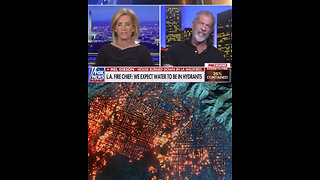 26:29
26:29
FragmentsOfTruth
2 days agoMel Gibson on California’s Water Crisis: Coincidence or Conspiracy?
77 -
 1:58:10
1:58:10
Nerdrotic
4 hours ago $3.48 earnedReconstructing the Superhero | FNT Square Up - Nerdrotic Nooner 457
50.6K4 -
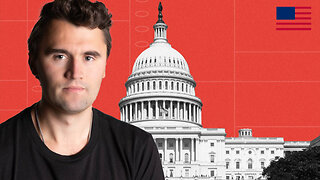 52:50
52:50
The Charlie Kirk Show
2 hours agoCA's Top Priority + Seven Days | Sen. Marshall, George, Thibeau | 1.13.2025
47.7K12 -
 1:12:03
1:12:03
The Kevin Trudeau Show
3 hours agoBREAKING NEWS | Insider Proof The Deep State Controls Everything | Ep. 82
26.5K3 -
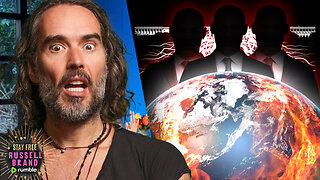 1:04:08
1:04:08
Russell Brand
4 hours agoDeep State Exposed: Veterans in the Crosshairs – SF518
111K168 -
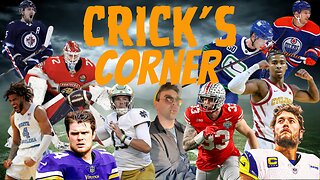 49:57
49:57
Game On!
4 hours ago $1.10 earnedNFL Wildcard Weekend FINALE! Plus, can Notre Dame actually beat Ohio State?
30.3K2 -
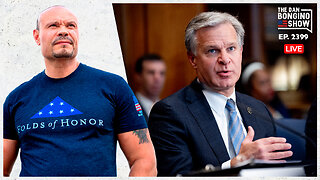 1:00:13
1:00:13
The Dan Bongino Show
8 hours agoThe FBI Warns Of A Grave Threat, But Will Anyone Believe Them? (Ep. 2399) - 01/13/2025
818K1.7K -
 1:23:10
1:23:10
The Rubin Report
4 hours agoMark Zuckerberg Makes Joe Rogan Go Quiet with Never-Before-Told Details of Biden’s Lies
83.5K83 -
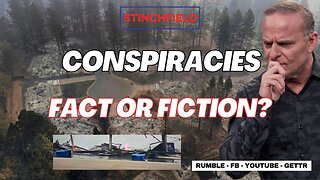 1:01:54
1:01:54
Grant Stinchfield
3 hours ago $1.65 earnedBe Wary of Viral CA Wildfire Conspiracies... But the Anomalies Can't be Ignored!
25.8K7 -
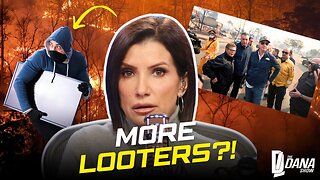 2:50:57
2:50:57
The Dana Show with Dana Loesch
3 hours agoLATEST ON CALIFORNIA WILDFIRES | The Dana Show LIVE On Rumble!
24.7K6